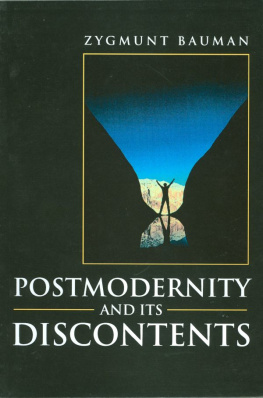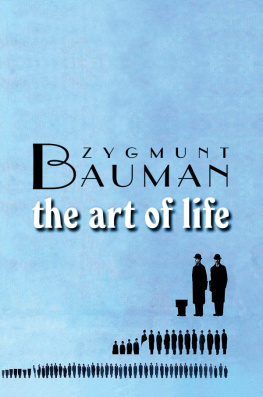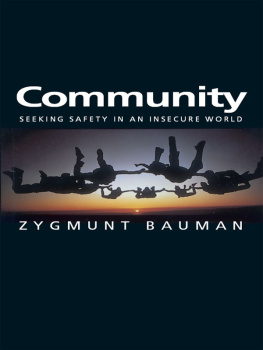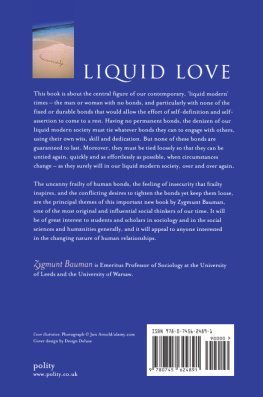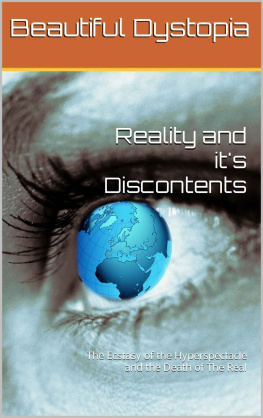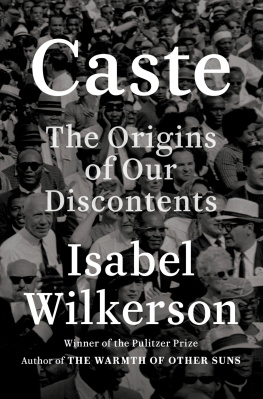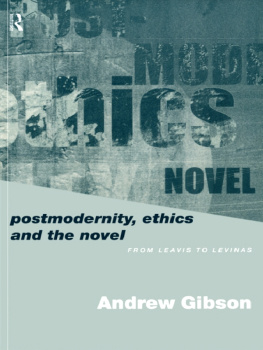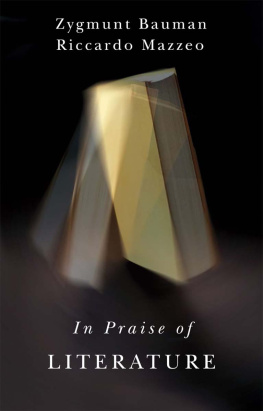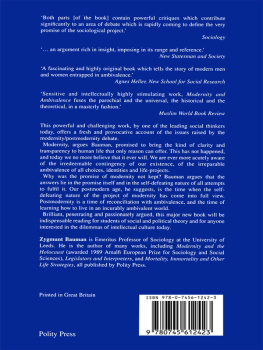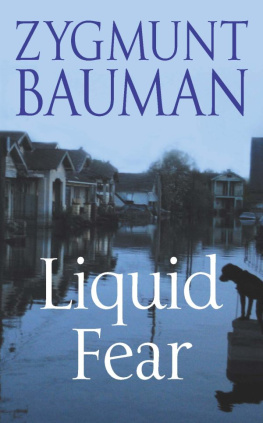Bauman - Postmodernity and its Discontents
Here you can read online Bauman - Postmodernity and its Discontents full text of the book (entire story) in english for free. Download pdf and epub, get meaning, cover and reviews about this ebook. City: Cambridge, year: 1998;2011, publisher: Wiley;Polity Press, genre: Politics. Description of the work, (preface) as well as reviews are available. Best literature library LitArk.com created for fans of good reading and offers a wide selection of genres:
Romance novel
Science fiction
Adventure
Detective
Science
History
Home and family
Prose
Art
Politics
Computer
Non-fiction
Religion
Business
Children
Humor
Choose a favorite category and find really read worthwhile books. Enjoy immersion in the world of imagination, feel the emotions of the characters or learn something new for yourself, make an fascinating discovery.
Postmodernity and its Discontents: summary, description and annotation
We offer to read an annotation, description, summary or preface (depends on what the author of the book "Postmodernity and its Discontents" wrote himself). If you haven't found the necessary information about the book — write in the comments, we will try to find it.
Postmodernity and its Discontents — read online for free the complete book (whole text) full work
Below is the text of the book, divided by pages. System saving the place of the last page read, allows you to conveniently read the book "Postmodernity and its Discontents" online for free, without having to search again every time where you left off. Put a bookmark, and you can go to the page where you finished reading at any time.
Font size:
Interval:
Bookmark:

Copyright Zygmunt Bauman 1997
The right of Zygmunt Bauman to be identified as Author of this Work has been asserted in accordance with the UK Copyright, Designs and Patents Act 1988.
First published in 1997 by Polity Press
Polity Press
65 Bridge Street
Cambridge CB2 1UR, UK
Polity Press
350 Main Street
Malden, MA 02148, USA
All rights reserved. Except for the quotation of short passages for the purpose of criticism and review, no part of this publication may be reproduced, stored in a retrieval system, or transmitted, in any form or by any means, electronic, mechanical, photocopying, recording or otherwise, without the prior permission of the publisher.
ISBN-13: 978-0-7456-1790-9
ISBN-13: 978-0-7456-1791-6(pb)
ISBN-13: 978-0-7456-5685-4(Multi-user ebook)
ISBN-13: 978-0-7456-5687-8(Single-user ebook)
A catalogue record for this book is available from the British Library.
The publisher has used its best endeavours to ensure that the URLs for external websites referred to in this book are correct and active at the time of going to press. However, the publisher has no responsibility for the websites and can make no guarantee that a site will remain live or that the content is or will remain appropriate.
Every effort has been made to trace all copyright holders, but if any have been inadvertently overlooked the publisher will be pleased to include any necessary credits in any subsequent reprint or edition.
For further information on Polity, visit our website: www.politybooks.com
Introduction: Discontents Modern and Postmodern
In 1930 a book called first Das Unglck in der Kultur , and later renamed Das Unbehagen in der Kultur , appeared in Vienna. Its author was Sigmund Freud. Almost simultaneously, the English translation appeared for which Freud suggested a title Mans Discomfort in Civilization . As Freuds English editor James Strachey informs us, Joan Riviere, the books English translator, played instead for a time with the concept of malaise , but chose finally the title Civilization and its Discontents . It is under this title that Freuds provocative challenge to the folklore of modernity entered our collective consciousness and in the end framed our thinking about the consequences both intended and unintended of the modern adventure. (We know now that it was the story of modernity which the book told, even if its author preferred to speak of Kultur or civilization; only modern society thought of itself as of an activity of culture or civilization, and acted on such self-knowledge, with the results Freud set out to explore; the phrase modern civilization is, for this reason, a pleonasm.)
You gain something, but usually you lose something in exchange: so went Freuds message. As culture or civilization, modernity is about beauty (this useless thing which we expect civilization to value), cleanliness (dirtiness of any kind seems to us incompatible with civilization) and order (Order is a kind of compulsion to repeat which, when a regulation has been laid down once and for all, decides when, where and how a thing shall be done, so that in every similar circumstance one is spared hesitation and indecision). Beauty (that is, whatever gives the sublime pleasure of harmony and perfection of form), purity and order are gains not to be played down and certainly not likely to be given up without an outcry, breast-beating and remorse. But neither are they to be had without paying a heavy price. Nothing predisposes humans naturally to seek or preserve beauty, to keep clean and to observe the routine called order. (If they seem here and there to display such an instinct, it must be a contrived and acquired, trained inclination, the surest sign of a civilization at work.) Humans need be forced to respect and appreciate harmony, cleanliness and order. Their freedom to act on their own impulses must be trimmed. Constraint is painful: defence against suffering generates sufferings of its own.
Civilization is built upon a renunciation of instinct. In particular so Freud tells us civilization (read: modernity) imposes great sacrifices on mans sexuality and aggressivity. The urge for freedom, therefore, is directed against particular forms and demands of civilization or against civilization altogether. And it cannot be otherwise. The pleasures of civilized life come in a package deal, so Freud insists, with sufferings, satisfaction with discontents, submission with rebellion. Civilization the order imposed upon naturally disorderly humanity is a compromise, a trade-off, continually challenged and forever nudged to be renegotiated. The pleasure principle is here cut down to the measure of the reality principle and the rules spell out that reality which is the measure of the realistic. Civilized man has exchanged a portion of his possibilities of happiness for a portion of security. However well justified and realistic may be our attempts to improve on specific flaws of the present-day solutions, perhaps we may also familiarize ourselves with the idea that there are difficulties attaching to the nature of civilization which will not yield to any attempt at reform.
Of that order which was the pride of modernity and the cornerstone of all its other accomplishments (whether appearing under the same rubric of order or hiding under the code-names of beauty and cleanliness), Freud spoke in terms of compulsion, regulation, suppression or forced renunciation. Those discontents which were the trade-mark of modernity arose from the excess of order and its inseparable companion the dearth of freedom. Security from the triple threat hidden in the frail body, the untamed world and the aggressive neighbours called for the sacrifice of freedom; first and foremost, the individuals freedom to seek pleasure. Within the framework of a civilization bent on security, more freedom meant less discontent. Within the framework of a civilization that chose to limit freedom in the name of security, more order meant more discontent.
Ours, however, is the time of deregulation. The reality principle has today to defend itself in the court of justice in which the pleasure principle is the presiding judge. The idea that there are difficulties attaching to the nature of civilization which will not yield to any attempt at reform seems to have lost its pristine obviousness. Compulsion and forced renunciation has turned from an irritating necessity into an unwarranted assault launched against individual freedom.
Sixty-five years after Civilization and its Discontents was written and published, individual freedom rules supreme; it is the value by which all other values came to be evaluated, and the benchmark against which the wisdom of all supra-individual rules and resolutions are to be measured. This does not mean, though, that the ideals of beauty, purity and order which sent men and women on their modern voyage of discovery have been forsaken, or lost any of their original lustre. Now, however, they are to be pursued and fulfilled through individual spontaneity, will and effort. In its present, postmodern version, modernity seems to have found the philosophers stone which Freud dismissed as a naive and harmful fantasy: it set out to smelt the precious metals of clean order and orderly cleanliness straight from the ore of the human, all-too-human bid for pleasure, ever more pleasure and ever more pleasurable pleasure a bid once decried as base and condemned as self-destructive. As if unscathed, perhaps even strengthened, by two centuries of concentrated efforts to keep it in the iron glove of reason-dictated rules and regulations, the invisible hand regained trust and is once more in favour. Individual freedom, once a liability and a problem (perhaps the problem) for all order-builders, became the major asset and resource in the perpetual self-creation of the human universe.
Font size:
Interval:
Bookmark:
Similar books «Postmodernity and its Discontents»
Look at similar books to Postmodernity and its Discontents. We have selected literature similar in name and meaning in the hope of providing readers with more options to find new, interesting, not yet read works.
Discussion, reviews of the book Postmodernity and its Discontents and just readers' own opinions. Leave your comments, write what you think about the work, its meaning or the main characters. Specify what exactly you liked and what you didn't like, and why you think so.

